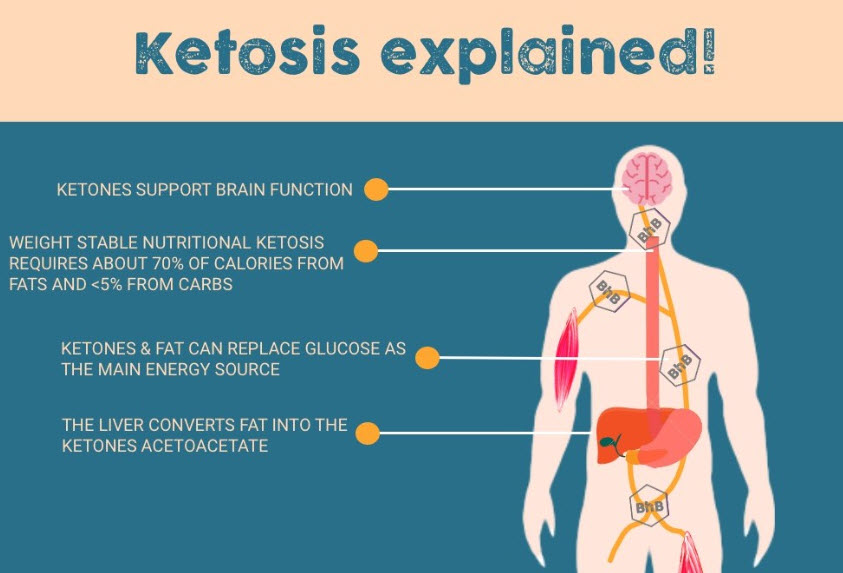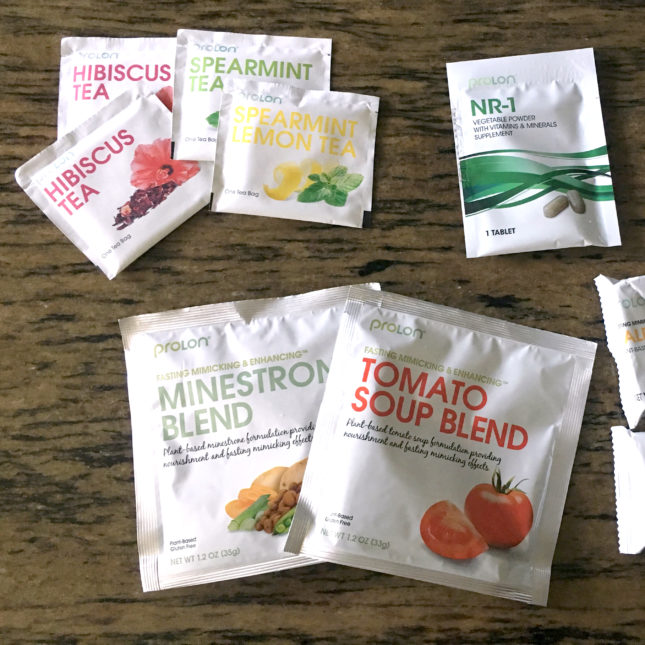
Intermittent fasting and a fasting-mimicking diet (FMD) have been linked to weight loss, reduced risk of diabetes, improved cardiovascular health, and more. But fasting can be difficult for some people.
A fasting-mimicking diet “tricks” your body into thinking it’s in a fasting mode, so it doesn’t tell you when to eat. It works by altering your body’s metabolic factors, including insulin-growth factor and ketone bodies, which may help reduce blood pressure, fatty deposits and other health markers associated with aging.
How does it work?
Intermittent fasting and fasting-mimicking diet (FMD) are both intermittent calorie-restricted eating plans. They differ from each other in a variety of ways, including the length of fasts and how long you're allowed to eat.
The intermittent fasting approach aims to change the body's internal clock by switching it from a fasting state to feeding states for different intervals. This helps you lose weight and improve your health while also balancing your calorie intake.
Meanwhile, the fasting mimicking diet triggers the body's metabolism to switch from using readily available blood glucose from food to fat reserves for energy through the process of ketosis. This shift can lead to a reduction in weight, blood pressure and abdominal fat.
Dr Valter Longo, a leading biogerontologist and cell biologist from the University of Southern California's Longevity Institute in Los Angeles, developed the fasting mimicking diet to help slow aging through autophagy -- the body's ability to recycle old and damaged cells.
What are the benefits?
Intermittent fasting and a fasting-mimicking diet have some similar benefits, such as weight loss, improved blood sugar and cardiovascular health. But a fasting-mimicking plan isn’t as restrictive as a full fast, so it’s easier to follow and may have more immediate results.
It’s important to talk to your doctor before you begin a fasting-mimicking or fasting plan. They will take into consideration your current health, medications and eating habits before making a recommendation for you.
A recent study on mice found that a short-term period of time-restricted feeding promoted the body’s process of autophagy (or self-eating), which helps repair and recycle cells for a healthier body and slower aging.
The practice also lowers insulin levels, which can decrease the risk of diabetes and heart disease. And it promotes a type of fat-burning known as ketosis, which can help reduce calorie intake and improve metabolic function. The research is still in its early stages, but it’s showing some promise as an anti-aging strategy.
What are the drawbacks?
Intermittent fasting, and more specifically the fasting-mimicking diet, has a number of positive health benefits. It can help you lose weight, boost your metabolism and improve brain function.
It also promotes good blood sugar and cholesterol levels, lowers your risk of heart disease and diabetes, decreases inflammation, and promotes healthy gut health.
But it can also be hard to stick with long-term, can affect your social life, and might lead to some health issues.
Despite these drawbacks, intermittent fasting can be very effective at helping you lose weight and keep it off for the long-term. However, it’s important to be aware of the pros and cons before you decide to give it a try.
The best way to avoid negative side effects is to follow an intermittent fasting schedule that’s tailored to your lifestyle. Make sure to drink plenty of water throughout the day and eat foods that are nutritionally balanced and filling. Then, you’ll be well on your way to a healthier and more fulfilling lifestyle!
What can I eat?
During an intermittent fasting and fasting-mimicking diet, it is important to eat healthy foods that are high in nutrients. This will help you maintain energy levels during your fast.
Proteins are a good choice during an IF because they provide essential amino acids that our bodies need for growth and repair. Proteins are also a great source of sustained energy.
Aim to eat protein-rich foods during your fasts, such as eggs, chicken breast, Greek yogurt, beans, and soy milk. Lean proteins have been shown to reduce weight and keep your metabolism running at a steady pace.
Drinking lots of water is another helpful tip. You can also add a splash of apple cider vinegar to your water, as it is loaded with health properties that improve insulin sensitivity, increase satiety and lower blood glucose levels.
Aim to eat a mix of whole grains, fruit, veggies and lean proteins during an IF. These foods will fill you up and provide the vitamins, minerals, fiber and protein your body needs during a fast.
Frequently Asked Questions
What can I eat to quickly lose weight while intermittent fasting?
Effective diet requires strategic thinking. To be able to intermittent fast and lose weight quickly, you need to make sure the foods you eat, as well as the amounts, match your fitness goals. This means you shouldn't eat too many processed foods.
Proteins are the key to successful intermittent fasting weight loss. For weight loss, choose lean proteins such as chicken or salmon that are packed with muscle-burning amino acids and lots of fiber. Protein will make you feel fuller, and help with your feelings of satisfaction. Next, high-fiber vegetables such as leafy greens or cruciferous vegetables will not only fill you up, but also provide essential vitamins and minerals like magnesium, vitamins K and vitamins C and, beta carotene and potassium, which fuel your cells. Adding complex carbs like oats or rice to a meal helps provide more energy to get through workouts but also helps regulate your blood sugar levels so you don't feel overwhelmed after eating a meal.
Healthy fats should not be overlooked. They should be consumed in moderation. Sunflower seeds and chia seed are rich in nutrients. They provide good levels of MUFA and PUFA, which are beneficial for your overall health and wellbeing. Brocolli, which is rich in nutrients, contains iron, calcium, magnesium, iron, and many other micronutrients.
This will allow you to create a keto diet plan that is balanced and satisfying, even during intermittent fasting.
What is permissible and what is not during intermittent fasting
To achieve desired results, it is important to understand the rules of intermittent fasting. It's not enough to eat less. You need to make sure you eat the right type and amount of food during certain times.
Intermittent Fasting refers to times when you will only eat food, and other times when you must eat fewer calories. These "fasting windows" usually last for 16 to 24 hours, allowing your body ample time to break down difficult-to-digest foods, cleanse itself, and speed up your metabolism.
Fasting doesn't necessarily mean you should stop eating during this time. These are good times to enjoy nutrient rich beverages like tea, lemonwater, or water. There are also calorie-free options, such as fruits and vegetables. The only restriction is that they can't be accompanied by any additional fat or oils.
This doesn't mean you can eat all the high-calorie, sugary foods and sweet treats that you want after you have finished your fast. It is important to keep healthy eating habits. It is only after you have completed the recommended fasted hours that you can begin to consider snacking on chips or other unhealthy food options. This will quickly negate all of your hard work. You should aim to consume low-glycemic index foods in your feeding windows, and instead focus on nutritious options like whole grains and lean proteins.
Remember that intermittent fasting does not work for everyone. Everybody is unique and will react differently to the same diet. Before you start any new diet, it is a good idea to talk with your doctor. Make sure to get enough rest, and that you are hydrated all the way through.
Is lemon water the answer to your fasting?
Although fasting can be extremely beneficial, many feel afraid of breaking it. How can lemon water help you break your fast?
It won't, at least not in small amounts. Citrus fruits are okay for consumption during fasting periods as they are packed with nutrients and vitamins that help regulate digestion and make up for some of the meals you miss.
Lemon juice is known to have many benefits for fasting. These include an increase in metabolism, hydration, fat-burning abilities, and increased nutrient absorption. A unique way to experience fasting with purpose is to use pure natural citrus flavours.
Studies have shown that sugar-free lemon juice is better consumed before breakfast, especially if you are fasting. This stimulates your digestive juices and helps you get started to your day.
Remember, more is not necessarily better. Limiting your intake to 2 tablespoons per day of fresh lemon juice is safe and will not affect the results of your fasting.
Don't worry, you can still enjoy high-quality breakfast flavors without losing out on vital nutrients. Every sip of your morning could be the difference between an ordinary day or one filled with amazing new possibilities.
How much weight do you need to lose in a week by intermittent fasting
Is it possible to calculate how much weight you should try to lose each week by doing an intermittent fast? Knowing the answer requires thoughtful consideration.
Balance is the key. Achieving too ambitious goals can lead you to burnout, injury, and even worse, burnout. When planning your weight loss goals, consider lifestyle factors such as adequate sleep, nutrition, and hydration. While counting calories can be helpful, it shouldn't be the main focus of your weight loss plan.
Also, it is important to know what sort of results are possible. For example, losing more than 1 - 2 kilograms per week may put undue pressure on your body. While trying to lose as little as 1 kilo could produce minimal or no visible results. Other than watching the scales move, body measurements can be used to track progress.
Finally, talk regularly with an experienced dietitian or health professional who can provide support and additional guidance throughout your journey. A neutral opinion can help you make sure that whatever goals and outcomes you have set for yourself are realistic, safe, and possible with long-term results.
How to start intermittent fasting
It can be daunting to begin intermittent fasting. You can start a successful journey to intermittent fasting by taking the right steps.
First, choose the type of fasting that you want to practice. There are three main types of intermittent fasting. They are time-restricted, 16/8, and 5:2. The 16/8 method is a time-restricted fast that restricts your eating habits to certain hours per day. While the 16/8 means you can eat meals in a short 8-hour period and skip meals the rest of the day, the 16/8 way involves eating meals only within those hours. The 5 to 2 diet includes two days of calorie restriction per week with normal eating on the rest.
Second, make sure to stock up on nutritious foods that can be made quickly and are easy to eat when hungry. This includes nutritious proteins like eggs, fish, legumes, and pulses, healthy fats such as nuts and oils, high-fibre carbohydrates such as quinoa, buckwheat, and many fresh fruits, vegetables, to help you get your daily intake of vitamins, minerals, and other foods.
You should also plan how you will deal with social pressure while dining out with family and friends. This is especially important for those who live a fast, intermittent lifestyle. Flexibility is also important in staying focused on your goals, so try to incorporate sweet spot meals that offer increased satisfaction while restrictive enough not to undo the progress made over the last few weeks or months.
Lastly, stay motivated by keeping track of results, including body weight and measurements around the waistline, hips, or other relevant areas but don't forget to reward yourself once goals have been achieved to keep motivation levels high.
Statistics
- IF participants) IF resulted in weight loss, ranging from 0.8% to 13.0% of baseline body weight (Table 1). (ncbi.nlm.nih.gov)
- consumption was examined in 1 study, which compared dietary fat intake of 45% versus 25% at the expense of carbohydrate intake. (ncbi.nlm.nih.gov)
- IF trials found weight loss of 0.8% to 13.0% of baseline weight with no serious adverse events. (ncbi.nlm.nih.gov)
- The rigor of fasting also varied, with several studies allowing 25% of regular caloric consumption during fasting periods. (ncbi.nlm.nih.gov)
External Links
doi.org
- Clinical Management of Intermittent Fasting in Patients with Diabetes Mellitus
- 24-Hour Fasting for Diabetes: Guide to Physicians Advising Patients on Medication Adjustments Prior to Religious Observances (or Outpatient Surgery Procedures) Grajower - 2011 Grajower – Diabetes/Metabolism Research & Reviews - Wiley Online Library
annualreviews.org
- Cardiometabolic Health Benefits of Intermittent fasting
- The Metabolic Effects of Intermittent Fasting - Annual Review of Nutrition
pubmed.ncbi.nlm.nih.gov
- Intermittent fasting: is there a role in the treatment of diabetes? PubMed: A review of the literature, and a guide for primary care doctors - PubMed
- Daily Fasting Improves Health and Survival in Male Mice Independent of Diet Composition and Calories - PubMed
jamanetwork.com
How To
Practice Intermittent Fasting and exercise
Finding the perfect fitness routine requires focusing on details many people overlook. Each great fitness achiever knows that it's not all about the calories burned but how they burn them.
Making smarter decisions with your eating habits can be a great way to maximize workouts while protecting your health and well-being. Here's where exercise and intermittent fasting come in.
Both these methods will set you up for success. You can control your hunger and avoid temptation, but still get the results you desire. Combining them together can provide incredible metabolic benefits.
Intermittent fasting, which stimulates fat burning through hormone levels, is proven to be powerful when combined with regular exercise. This practice will allow you to change up your body’s energy source, so stored fats can be more easily used for fuel during your workout sessions. This will make each session more productive.
Intermittent fasting allows for more intense workouts while reducing calories. This is without compromising energy or performance. This may help to reduce muscle protein damage and reduce oxidative stress from exercising hard.
Start experimenting with these powerful combinations and start taking control of your transformation today!
Resources:
 |
How To Do Intermittent Fasting For Health - Dr Sten Ekberg Wellness For LifeHow To Do Intermittent Fasting For Health and Long Lasting Weight Loss. Learn what is intermittent fasting and how to do it without feeling hungry. You will |
 |
What are BENEFITS of Intermittent Fasting?Some research suggests that intermittent fasting may be more beneficial than other diets for reducing inflammation and improving conditions associated with |
 |
[Doctorly Unhinged - EP1] Ozempic Woes, DEBUNKING Intermittent Fasting, and the DANGERS of ManicuresSUBSCRIBE TO OUR PODCAST! https://doctorly.podlink.to/unhinged Is this trending medication that’s been touted to cause dramatic weight loss changing |
 |
The Good Life: Intermittent fasting: Ideal for weight loss?We decode the hype around one of the most popular eating methods for weight loss. Is intermittent fasting for everyone? #thegoodlife #intermittentfasting |
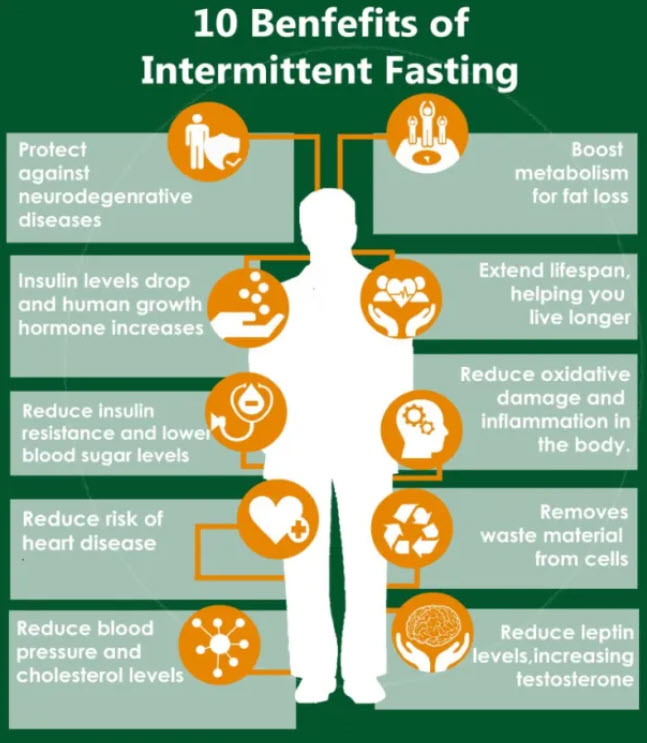 |
Intermittent Fasting For Weight LossWeight loss with Ketosis |
 |
Intermittent Fasting: A Two-Month Experiment. Does It Work? | Talking Point | Full EpisodeAfter drinking sugar-laden bubble tea three times a week for a month for an earlier Talking Point episode, host Steve Chia is ready to lose the weight he |
 |
Intermittent Fasting May Have Health Benefits Beyond Weight Loss | TODAYAccording to an article in the New England Journal of Medicine, new evidence suggests that intermittent fasting could provide many health benefits beyond |
 |
Don’t know whether to cut or bulkDon’t know whether to cut or bulk |
 |
What’s your favorite way to eat chicken?What’s your favorite way to eat chicken? |
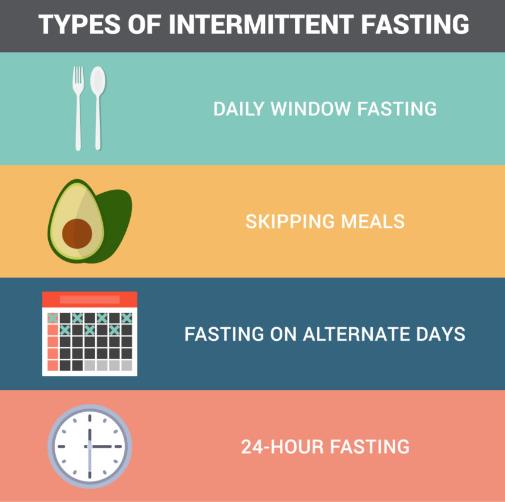 |
Intermittent Fasting For Pregnant WomenWhile intermittent fasting for pregnancy has its benefits, it can also be dangerous. Read on to learn more about the risks and benefits of.. |
 |
Intermittent Fasting TESTED - 30 Day Before & AfterGo to https://NordVPN.com/goalguys and use code GOALGUYS to get a 2-year plan plus 1 additional month with a huge discount. It’s risk-free with Nord’s 30-day |
 |
Intermittent Fasting and Low-Carb DietIf you want to lose weight, try combining intermittent fasting with a low-carb diet. Both methods help you lose fat and control health conditions... |
 |
Intermittent Fasting Guide for 2022 | Doctor Mike HansenIntermittent Fasting Guide for 2022 | Doctor Mike Hansen Did you know that it's been predicted that by 2030, more than half of the U.S population will be |
 |
How to do Intermittent Fasting: Complete GuideJoin my Email List: https://www.thomasdelauer.com Check out Thrive Market: http://ThriveMarket.com/Thomas Follow More of My […] |
 |
How Autophagy WorksAutophagy is a dynamic degradation system that promotes tumor survival. It also promotes the growth of established tumors and facilitates metastasis. .. |
 |
Intermittent Fasting Myths - Top 5 | Jason FungI cover the most important myths about intermittent fasting and why they are not true. Check out my website at https://www.doctorjasonfung.com and blog at |
 |
Intermittent Fasting 8/16You may have heard of the intermittent fasting 8/16 or 12/12 time restriction. This type of fast requires you to go without eating or drinking for.. |
 |
Intermittent Fasting For WomenSide effectsWomen who are looking for a way to lose weight can try intermittent fasting. However, there are several side effects to this type of.. |
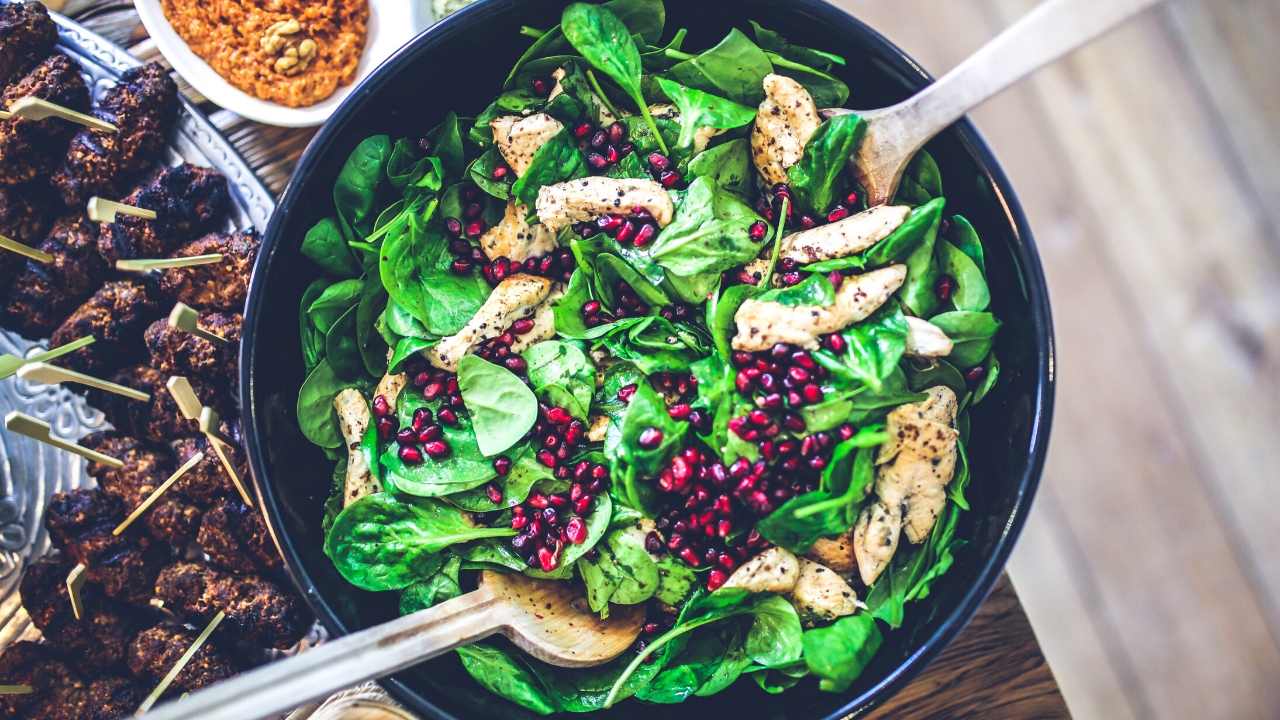 |
How Much Cholesterol in a DayHow much cholesterol in a day depends on a number of factors. While dietary cholesterol is not necessarily bad, excess intake can lead to serious.. |
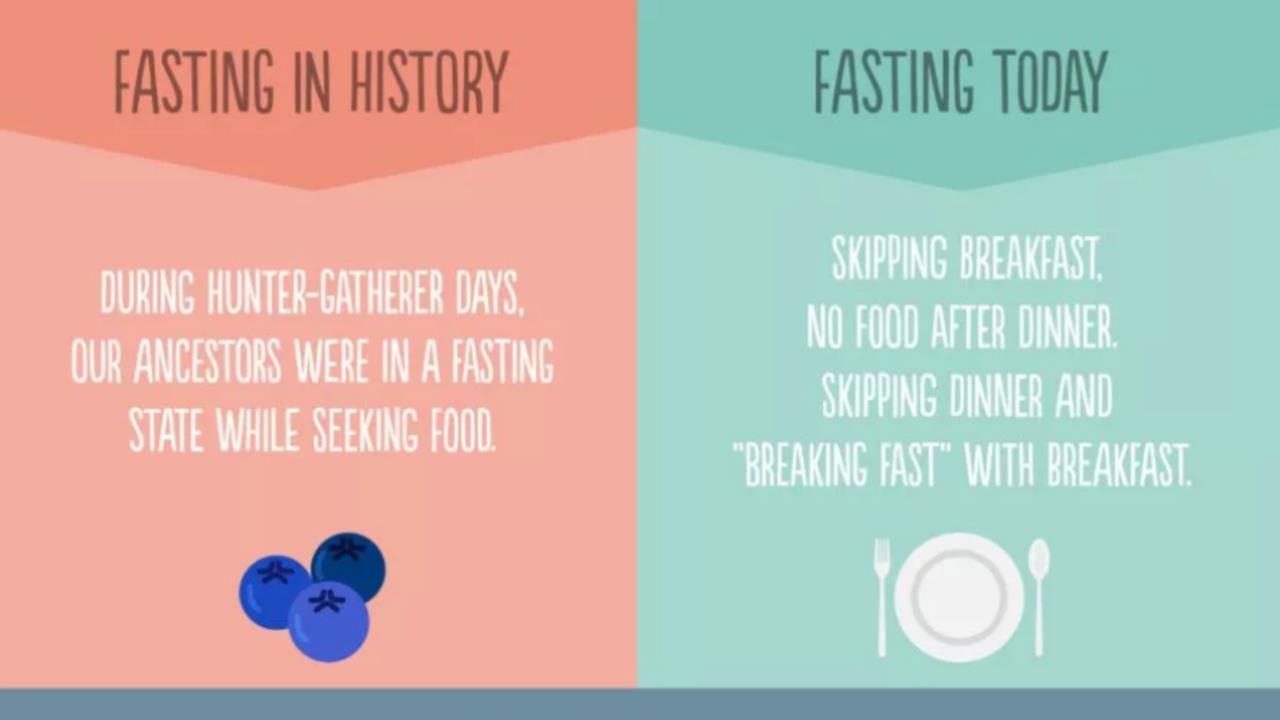 |
Is Skipping Breakfast Right For You?Skipping breakfast has a number of benefits, including the ability to lose weight, improve training performance, and increase growth hormone levels... |
 |
The Benefits of the AIP DietThe AIP diet has a number of health benefits. Besides reducing inflammation and weight, this diet also provides essential nutrients. These include.. |
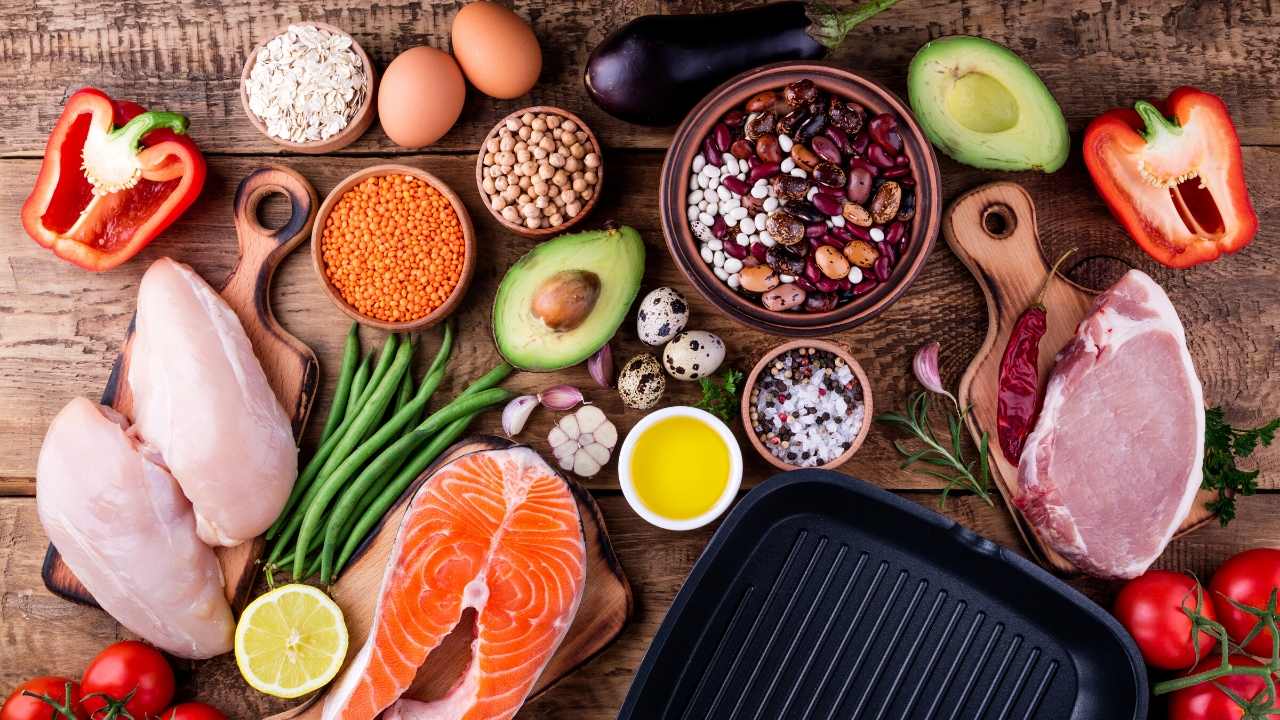 |
Is Eating Only One Meal A Day a Good Idea?Eating only one meal a day is not a good idea, and it is not sustainable for most people. It may help some people lose weight, but for the average.. |
 |
What Are the Side Effects of Water Fasting?Water fasting is a form of fasting, where a person consumes only water during a period of time. It may be undertaken for medical reasons or for.. |
 |
Intermittent Fasting and Blood PressureResearchers have discovered that intermittent fasting may have positive effects on blood pressure. Blood pressure affects the risk of heart disease,.. |
 |
Intermittent Fasting For Weight LossAll you need to know about Intermittent fasting and weight loss |
 |
Is it Okay to Drink Coffee on Intermittent Fasting?You might have heard that it's okay to drink black coffee on intermittent fasting. But did you know you can also enjoy a cold brew? What about.. |
 |
How to Start Fasting 48 HoursIf you are considering fasting 48 hours, here are some of the benefits. There are also a few precautions you should keep in mind before you begin. In |
 |
A Psoriasis Diet Can Help Reduce the Severity of Your PsoriasisA psoriasis diet should consist of eating foods that are rich in vitamin A and C, as well as avoiding sugars and processed foods. Avoid eating red.. |
 |
The DASH Diet to Prevent HypertensionThe DASH diet is an eating plan that was developed by the National Heart, Lung, and Blood Institute. It focuses on fruits and vegetables, low-fat.. |
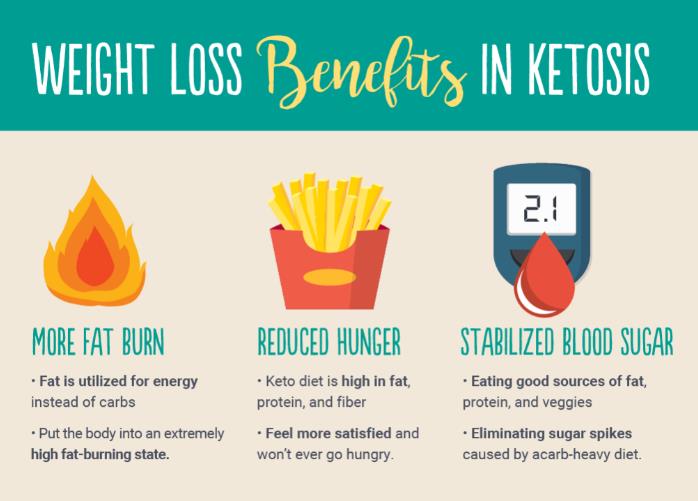 |
LIFE Fasting Tracker - LIFE Apps | LIVE and LEARNThe best, and free, intermittent fasting tracking app for iPhone and Android. Easy to use. Supports all fasting types. Fast with friends. Download for Free. |
 |
Intermittent Fasting AppsIf you're on an intermittent fasting regimen, it's important to keep track of your food and exercise intake. Several apps can help you stay on track.. |
 |
Time Restricted EatingIf you're interested in losing weight or improving your health, you may want to try Time-restricted eating or intermittent fasting. Read on to learn.. |
 |
Reactive HypoglycemiaThere are several different ways to treat reactive hypoglycemia. The first step is to reduce or eliminate your caffeine and alcohol intake. You may.. |
 |
Low-Carb Meal PlansLow-carbohydrate meal plans are based on limiting the amount of carbohydrates you eat. Instead, you replace foods that are high in carbohydrates with |
 |
Intermittent Fasting: What is it, and how does it work?Intermittent fasting involves switching between fasting and eating on a regular schedule. This type of fasting could manage your weight or even some forms of |
 |
How Autophagy WorksAutophagy is a dynamic degradation system that promotes tumor survival. It also promotes the growth of established tumors and facilitates metastasis. |
 |
The 12-Hour Fast - What Are the Benefits of a 12-Hour Fast?The 12-hour fast is a popular dietary approach that can help you lose weight. It forces your body to rely on its stored fats for energy. It has also.. |
 |
Fasting Before Working OutFasting before a workout has its advantages. Not only does it provide more energy during a workout, it can also help with digestion, which can take.. |
 |
Healthy Ways to Lose WeightLosing weight is a great way to improve your health and reduce your risk of certain conditions. It can also reduce your total cholesterol levels and.. |
 |
Intermittent Fasting 101 — The Ultimate Beginner's GuideThis is a detailed guide to intermittent fasting (IF). Studies show that it can help you lose weight, improve health and perhaps even live longer. |
 |
Top Intermittent Fasting AdvantagesThere are many advantages to intermittent fasting as a strategy for weight loss. Intermittent fasting can work with any diet... |
 |
Weight Loss (Low Carbohydrate Diets)Low carb diets have often been used throughout history for weight loss. Although sometimes called a fad, low carb diets have actually more science... |
 |
The Key Factors of Weight LossWeight gain and obesity, like any medical disease, is multifactorial. This means that there are many factors that cause weight gain... |
 |
How Doctors Lose WeightHow do doctors lose weight? For their patients, doctors often advise following standard diets, but when trying to lose weight themselves... |
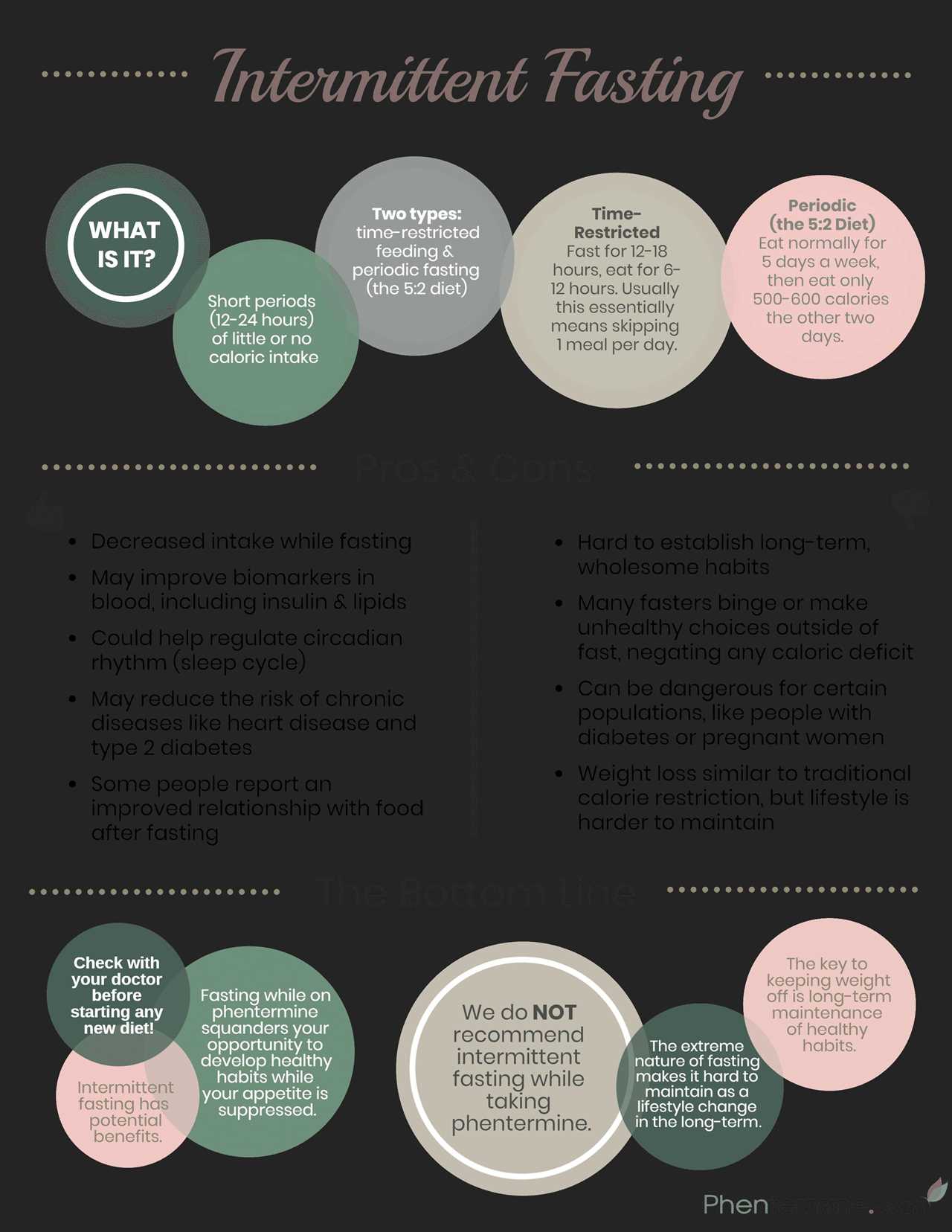 |
Is intermittent fasting good for you?Intermittent fasting isn't new, but it's gaining followers. What's the appeal? |
 |
Vacation Weight Loss PlanWhat is the best vacation weight loss plan? Most people [...] |
 |
Should I (lean-) Bulk or Cut?Should I (lean-) Bulk or Cut? |
 |
100lbs down!100lbs down! |
 |
Calculating the Maintenance calories on workout and rest daysCalculating the Maintenance calories on workout and rest days |
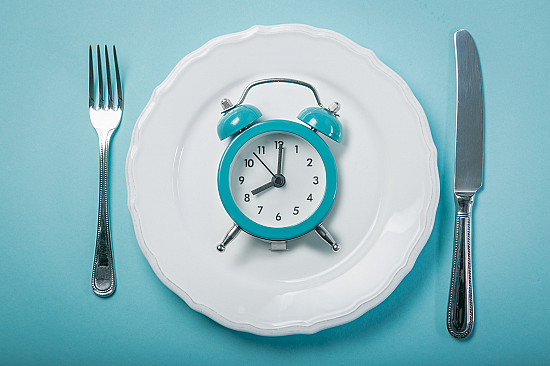 |
Intermittent fasting: The positive news continues - Harvard HealthHarvard research about Intermittent fasting ... |
 |
Rat Model: Intermittent Fasting Normalizes High Blood Pressure Induced by Harmful Intestinal BacteriaPrevious studies have shown that a harmful combination of gut bacteria can cause high blood pressure (hypertension) in humans and other animals. Having a |
 |
Your D-I-E-T Meditation PlaylistIn my TEDx talk, I suggest recasting the noxious word “diet” into D-I-E-T — a reminder to ask ourselves “Did I Enrich Today?” One of the ways we can enrich…The |
 |
Holiday Health (Damage Control)With the holidays on us, maybe your intermittent fasting schedule isn’t as rigorous as it once was. That’s not necessarily a bad thing, because social |
 |
You Got a Zero.Zero’s not been my hero. Through grade school and college, zeroes used to be something of a monster in my mind. Teachers illustrated just how bad a zero is |
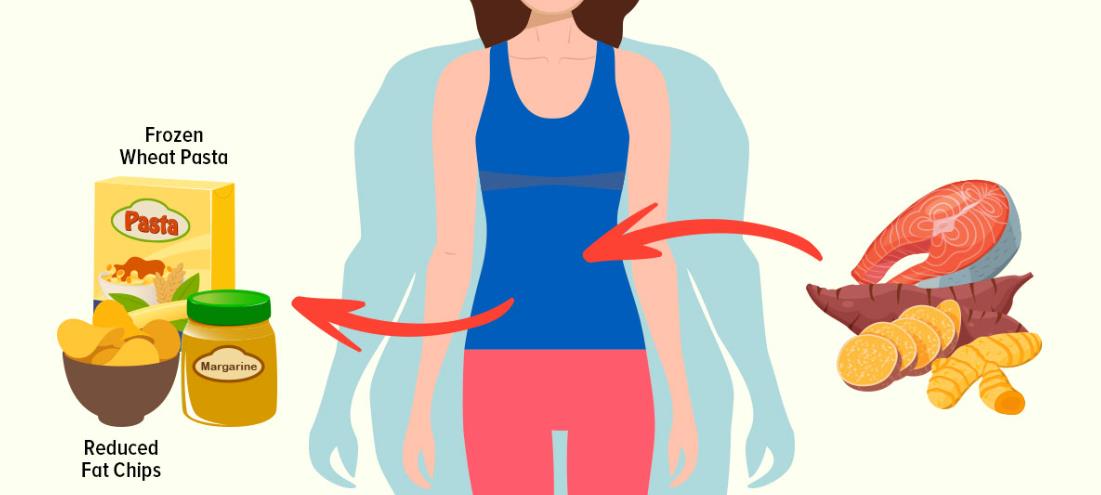 |
Six ways to do intermittent fasting: The best methodsIntermittent fasting is an increasingly popular diet option for weight loss. There are several programs, but this guide can help you find out which one is |
 |
Intermittent Fasting ExperiencesI took part in an energetic discussion of intermittent fasting experiences as part of the release of Women Action Takers Who Gained By Losing for which I wrote |
 |
How to Break a Fast: What to Eat After FastingHow to Break a Fast: What to Eat After Fasting Written by Stephen Anton PhD on May 15th, 2022 How to break a fast? This is an excellent question and one |
 |
How to Believe in Yourself: 10 Tips for Becoming Your Best SelfHow to Believe in Yourself: 10 Tips for Becoming Your Best Self Guest Post by William Anton PhD on June 12th, 2022 William D. Anton, Ph.D is a renowned |
 |
36-Hour Fast (Monk Fast): Everything You Need to Know36-Hour Fast (Monk Fast): Everything You Need to Know Written by Stephen Anton PhD on July 5th, 2022 The 36-hour fast is a challenging fast in that it |
 |
Diet A to Z: Intermittent FastingThe two-day-a-week diet: How intermittent fasting can help you lose weight and boost your health. |
 |
18/6 Intermittent Fasting: Is It the Right Plan for You?18/6 Intermittent Fasting: Is It the Right Plan for You? Written by Stephen Anton PhD on November 29th, 2022 Intermittent fasting has become one of the |
 |
20/4 Intermittent Fasting: The Pros and Cons of a Longer Fast20/4 Intermittent Fasting: The Pros and Cons of a Longer Fast Written by Stephen Anton PhD on January 25th, 2023 There are so many different approaches to |
 |
Everything you need to know about the OMAD dietThe one meal a day (OMAD) diet is a type of time-restricted eating intermittent fasting protocol that involves—you guessed it—eating just one meal a day and |
 |
The ultimate guide to intermittent fasting 20/4When we’re trying to lose weight, we usually think about what we can and can’t eat. Bye-bye beer and burgers. Helloooo carrots and kale! But with intermittent |
 |
The Flexitarian Diet — A Beginner’s Guide by SimpleFrom workouts to working hours, most of us enjoy a little flexibility. So it’s no wonder that when it comes to what we eat, a little wiggle room goes a long |
 |
The Mediterranean diet for weight lossPeople have loved the Mediterranean diet for many years. It’s not a “weight loss diet,” per se. It’s just how people in places close to the Mediterranean Sea |
 |
The complete guide to 18/6 intermittent fastingIntermittent fasting (IF) regularly shows up as many health-seekers’ go-to eating plan, and for good reason. Research suggests that it could have a profound |
 |
The Impact of Different Drinks during Intermittent Fasting: Benefits, Downsides, and ResearchA common dietary strategy called intermittent fasting (IF) alternates between periods of fasting and eating. Apart for water, black coffee, and tea, people |
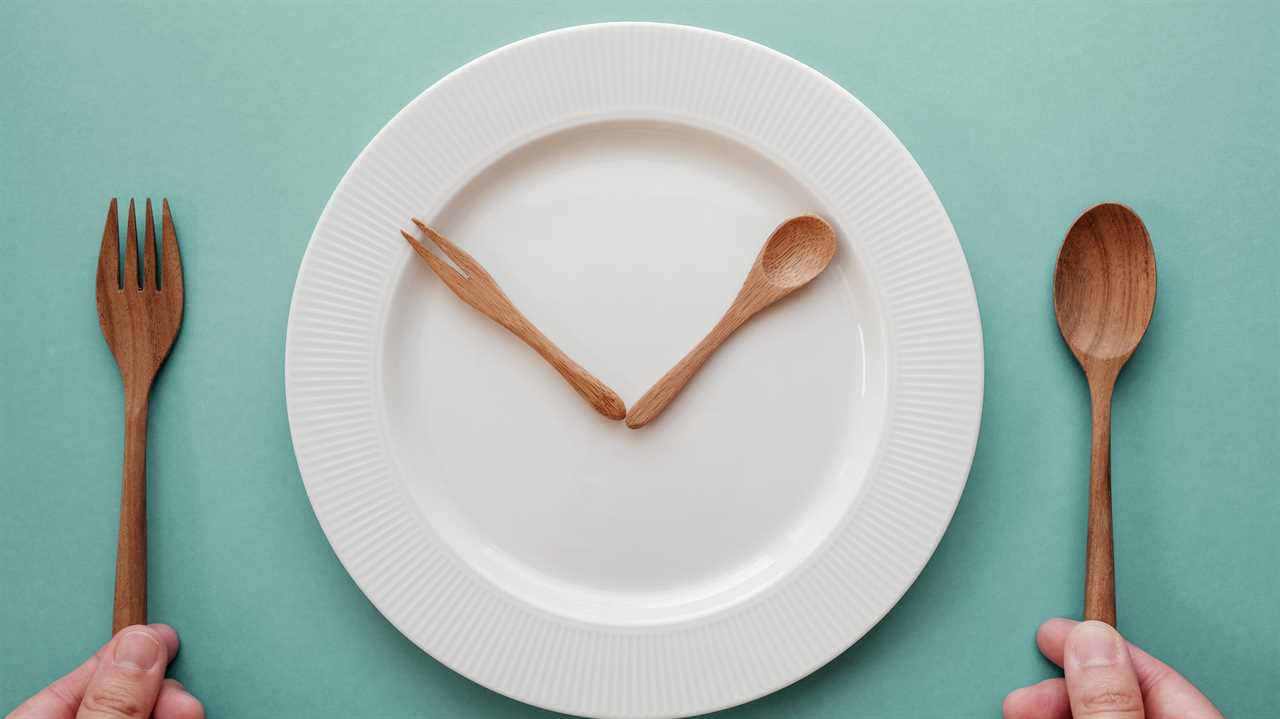 |
Intermittent fasting (IF): Your complete guide - Diet DoctorIntermittent fasting is popular, effective, and easy. This guide tells you how to get started with a successful intermittent fasting routine. |
 |
Intermittent Fasting and Muscle Gain: Benefits, Downsides, and ResearchA common dietary strategy for people who want to increase their muscle mass while also aiding fat loss is intermittent fasting (IF). Although IF has mostly |
 |
Burning Belly Fat: Intermittent Keto vs Intermittent Fasting – Which is More Effective?Visceral fat, commonly referred to as belly fat, is the fat that builds up around the midsection and is associated with a number of health issues, such as |
 |
When you’re ill, is intermittent fasting safe? Precautions and considerations.Those who want to reduce weight, get healthier, or even live longer are increasingly following the trend of intermittent fasting. Yet if you’re sick, you might |
 |
When Intermittent Fasting Stops Working: Reasons, Solutions, and EffectivenessRecently, intermittent fasting has become more well-liked as a technique to reduce weight, enhance general health and longevity, and even improve mental |
 |
5 Intermittent Fasting Methods, ReviewedIntermittent fasting comes in many shapes and forms. This article reviews its pros and cons so you can decide if it's worth a try. |

